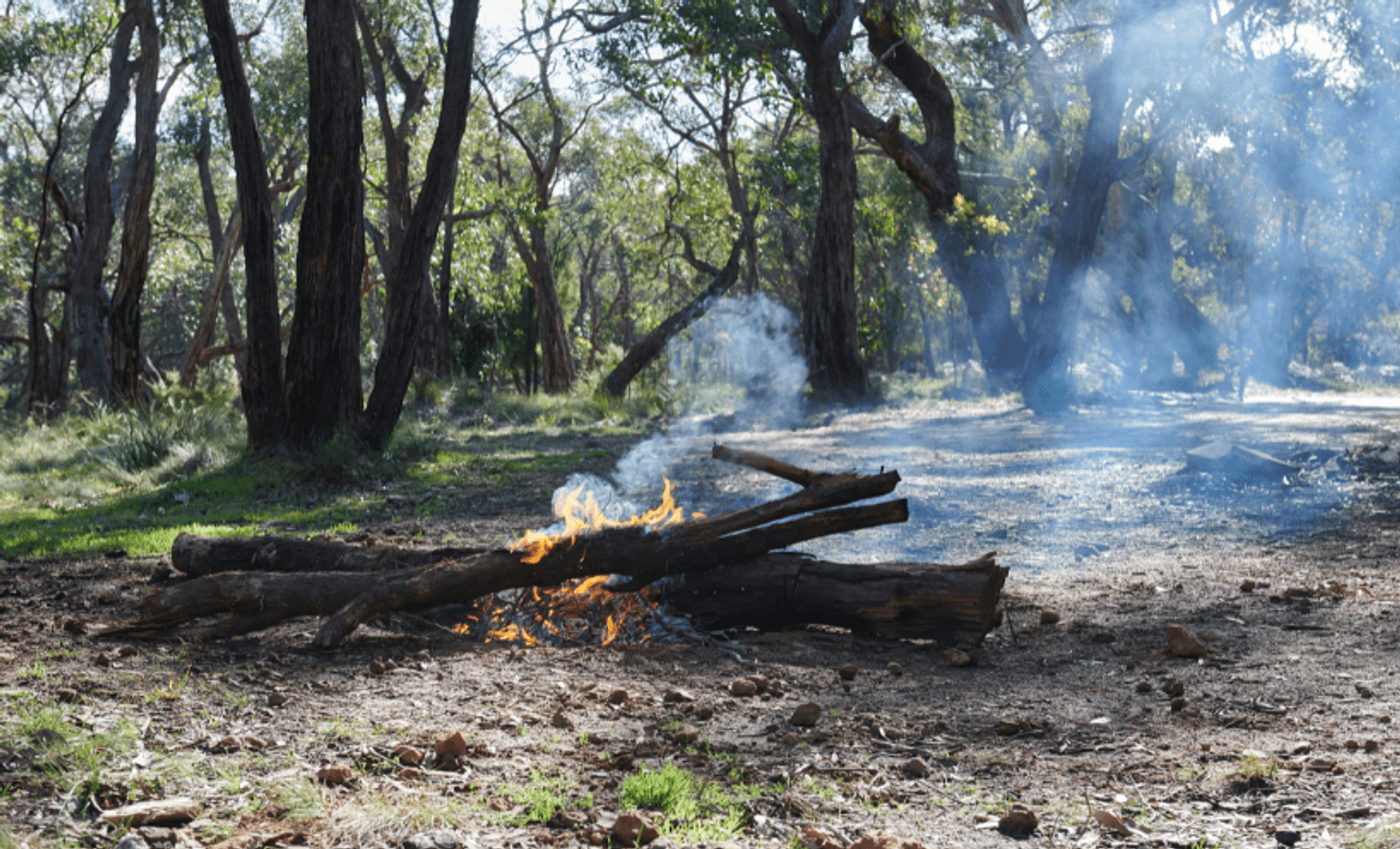- Published:
- Wednesday 25 January 2023 at 2:17 pm

The Conservation Regulator, Parks Victoria, Forest Fire Management Victoria, and the Country Fire Authority are banding together to warn Victorians about the risks of unsafe campfires and barbeques as tens-of-thousands of people prepare to take a long weekend.
For those taking the opportunity to turn the public holiday into a long weekend of outdoor activities, vigilance around campfires and barbecues is crucial to decrease the risk of fires, whether at home or on public land.
With plenty of grass growth on public and private land in recent months, unattended campfires and barbecues could quickly escape and spark bushfires. Conservation Regulator and Parks Victoria Authorised Officers, and Forest Fire Management Victoria crews will patrol campsites on public land to educate campers and enforce campfire rules to keep visitors and the environment safe.
Forest Fire Management Victoria crews have already responded to 96 unattended campfires on public land this summer, many of which escaped and caused larger fires.
Fire services are also warning those cranking up the barbecue at home to take care to avoid causing fires or burn injuries. CFA volunteer firefighters responded to almost 200 barbecue and other outside cooking equipment-related fires across the state last financial year.
Visitors to public land are responsible for checking fire danger ratings and weather conditions before lighting a campfire or barbecue, and for ensuring fires comply with safety rules. Wrongdoers on public land face on-the-spot fines of $555 or a maximum penalty of $18,174 if the matter is prosecuted in court.
The maximum penalty for lighting or maintaining a fire during a Total Fire Ban is $43,617 and/or two years in jail. Report unattended campfires to 136 186 or call 000 to report a bushfire.
For more information about rules in state forests, including campfires and vehicle use, visit vic.gov.au/rules-in-state-forests. For information on barbecue safety, visit cfa.vic.gov.au/plan-prepare/fires-in-the-home/barbeque-fire-safety
After a wet spring, summer is well and truly here and the risk of an unattended campfire becoming a bushfire is still high. Those who ignore the rules will face penalties.
Just one spark from an unattended campfire is enough to have devastating consequences. Never light a fire on a Total Fire Ban day, never leave a campfire unattended, and always have enough water to fully extinguish a campfire before you leave. It should be cool to touch.
We know people will be keen to get back into nature following the wet summer we have had. Fire risk may not seem as obvious this year, but as hot weather and windy days can change things very quickly. Always check weather conditions and park closures before you head into the bush.
Conditions have been heating up in recent weeks, which has dried vegetation out considerably, so I urge all Victorians ahead of this weekend to check the Fire Danger Ratings and to heed our warnings before heading out and about.
Campfire safety:
- In state forests, use a purpose-built fireplace if available, otherwise dig a trench at least 30cm deep.
- In national parks, fires can only be lit in purpose-built fireplaces.
- The campfire must not exceed one square metre, and three metres above and around your fire must be clear of flammable material.
- Branches and logs on your campfire must be no longer than one metre.
- Never leave a campfire unattended – always stay within line of sight.
- Campfires must be extinguished with water, not soil, as fires can still smoulder under soil. If the remains of campfire, including coals, are cool to touch, they are safe to leave.
- All rubbish must be taken home with you, not burned.
Barbecue safety:
- If a fire occurs, turn off the gas at the cylinder or meter, but only if safe to do so. In most cases this should allow the fire to extinguish itself. If you’re unable to extinguish the fire safely, call Triple Zero (000).
- Check the LP gas cylinder on your barbecue before you turn it on. A cylinder must not be refilled if it hasn’t been tested for more than 10 years or if the cylinder has been damaged.
- Check the hose to make sure it has not deteriorated.
- Check the connections to make sure they are tight and that the O rings are in good condition and have not cracked or split.
- Check for gas leaks by spraying soapy water on the connections and hoses. Bubbles will appear if there is a leak when you turn on the gas.
- Use your barbecue in a clear space. Never use it indoors or in a confined area and ensure there is adequate clearance from walls, fences, and other property.
- Cook with barbecue utensils and wear an apron to protect yourself from hot fat.
- Remove excess fat from the barbecue after each use to prevent fires.
- Do not use barbecues in windy conditions as the burners may blow out, risking a gas leak.
Charcoal burner barbecue safety:
- Use your charcoal burner in a clear space. Never use it indoors or in a confined area and ensure there is adequate clearance from walls, fences, and other property.
- Never dispose of or handle old coals until they are completely cold.
- To eliminate the possibility of accidental flare ups, always cool down old charcoal and ash but slowly pouring water over the charcoal and stirring to completely eliminate the possibility of dormant embers re-igniting.
- Be careful adding water too fast to hot coals as this can create hot steam which can burn. Make sure you pour slowly to avoid creating hot steam.
- Once charcoal and ash is completely cold, it can be disposed of safely.
Updated